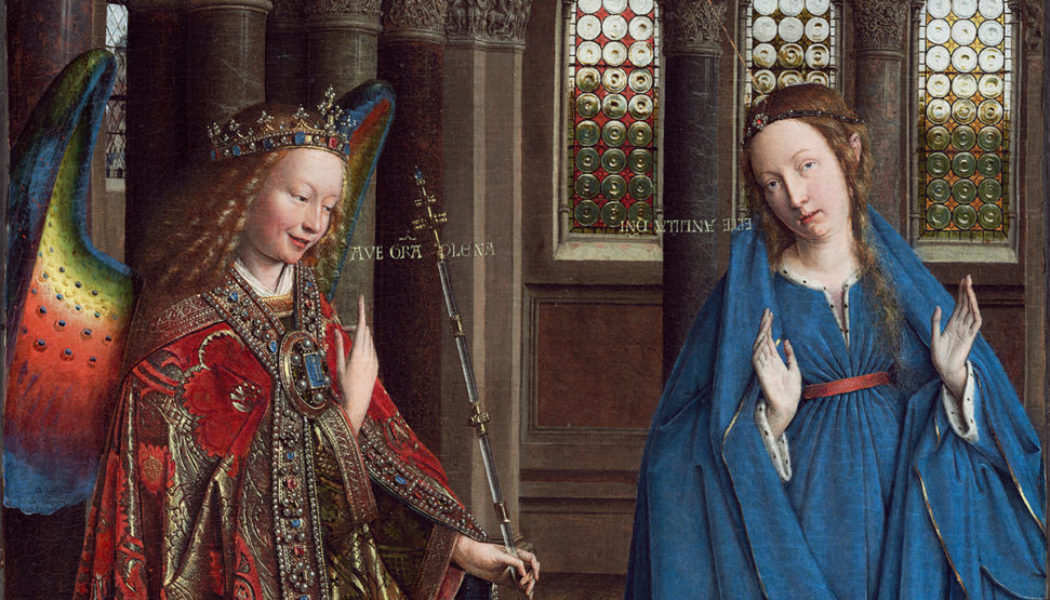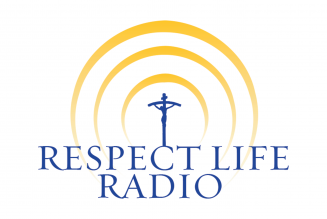“This is the beginning. This is the day. You are watching the unfolding of one of history’s great adventures.”
Those dramatic words began the 1965 sci-fi series, “Lost in Space.” They are even more fitting for the Annunciation, history’s greatest adventure.
Using our liturgical calendar, let’s put ourselves at the end of March in northern Israel more than 2,000 years ago. Living in Nazareth is a young man named Mary. She was an observant Jewish girl raised by her parents, Joachim and Anne. She was perhaps in her teens (remember the lifespan of the times) and probably very poor. As regards the latter, so was Joseph, the man to whom she was engaged, even though — somewhere long ago — his family was part of the line of the great King David.
On that day — a day that likely began like many others — she was probably at home. She might have been praying. She might have been doing her chores. Neither should surprise us: in her day, God was a part of everyday life. Religion was not an optional add-on, something unusual to life.
Mary becomes aware of a presence. It might not have been a presence like Joachim’s or Anna’s or Joseph’s, but she knew it was real. She knew it was not this-worldly, but she also knew it was no threat.
The presence manifests itself and speaks. The angel speaks to her, greeting her warmly with words that alone give sense to all our lives: “The Lord is with you!” She is “highly favored,” but her favor comes from her relationship with God. What’s more, Mary herself would have understood that. She knew that, by the world’s standards, she was poor little Miriam in poor backwater Nazareth. But, more importantly, theologically she knew that what made a life a success or failure was how one stood with God.
The angel reveals God’s plan: by the power of the Holy Spirit, she will conceive and bear a son, the “Son of God.” And, to confirm that declaration by rooting it in Mary’s life, the angel mentions the now advanced pregnancy of an older relative, Elizabeth, whom everybody probably expected would die childless. But “nothing is impossible with God.”
Did Mary otherwise already know of Elizabeth’s blessed state? Was Gabriel’s word news to her? How did its subsequent confirmation by “ordinary means” (like a letter) affect Mary?
Mary doesn’t understand. She is a virgin. How will she be a mother?
The Angel explains God’s plan. And Mary knows “nothing is impossible with God.” There’s Elizabeth. And, as a Jewish girl, she certainly knew of the great Sarah, the wife of Abraham, who, in her old age, bore the son — Isaac — who would be the father of Jacob, also known as Israel.
Yes, “nothing is impossible with God.” And that’s good enough.
Now, all that remains is the answer. This is the day. You are watching the unfolding of man’s greatest adventure. Heaven and earth are watching what a poor girl in backwater Israel says next.
“I am the handmaid of the Lord. May it be done with me according to your word.”
God respects our freedom. At the same time, freedom is not neutrality: freedom exists for the good. God certainly knew the goodness of this woman to whom he gave life from her conception free of all sin: the Immaculate Conception. Mary was free. Mary loved God. What God wanted was what Mary wanted.
“May it be done with me according to your word.”
The Gospel is terse: “Then the angel departed.” And, no doubt, a song of joy arose across heaven that, nine months from now, some Bethlehem shepherds would hear but an echo.
What God wanted was what Mary wanted.
Is that true of me?
Do I, a sinner, honestly pray — as I am in this Rosary — “Thy will be done” when I really sometimes mean, “My will be done?” Am I always ready to say, as Jesus would in the Garden of Gethsemane, “Not My will but Thine be done!” Even when saying that will lead to hard things, as did Gethsemane?
Today, we rejoice. Today, the human Mary has shown us fellow human beings how to talk to God. She has shown us humility: awareness of who she is, and of who God is. And that is why, she will soon sing, God “has looked upon his handmaid’s lowliness; behold, from now on, all ages will call me blessed” not because of what she has done as much as what she has allowed God to do with and for her.
The same principle applies to us. God is never a threat to you. “I know the plans I have for you, plans for your welfare and not for harm; to give you a future with hope” (Jeremiah 29:11).
The Annunciation has often been depicted in art, but perhaps never more masterfully than by the early Netherlandish painter, Jan van Eyck. His “Annunciation” dates from about 1435 and hangs in the National Gallery of Art in Washington.
Looking at this painting itself should inspire your Rosary meditation, because it is replete with theological allusions, e.g., the illustrations on the floor are not just decorations but allusions to Old Testament texts foretelling the coming of the Messiah. The written bands highlight the most important words in this dialogue: “Hail, full of grace” and “I am the handmaid of the Lord.”
Unlike most Annunciation scenes, Van Eyck sets his in a church, not Mary’s home. The Church today speaks of Mary as “Mother of the Church.” But the Church is a sacrament, i.e., a visible sign of God’s invisible grace. And the Church first takes flesh here, on the Annunciation, in the form of she who was not “just” Mother of God but also Jesus’ first disciple and, by her Immaculate Conception, the first beneficiary of his Redemption.
Jesus’ life begins today. Today — not Christmas — Jesus entered the world. Let’s not forget that when so many of his brothers and sisters are denied entrance to that world once their lives begin.









